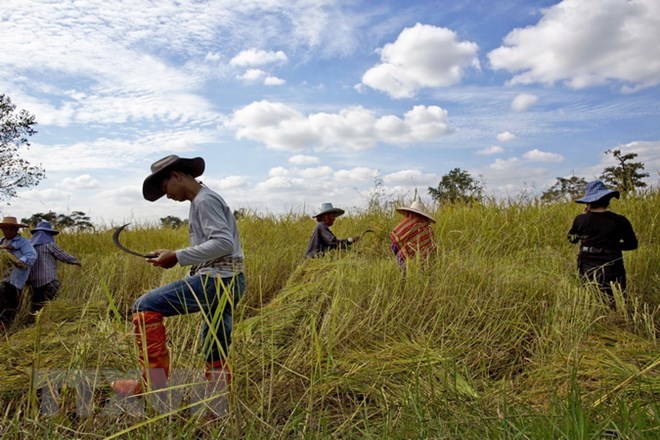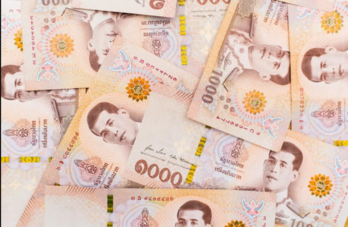
Harvesting rice in Buriram, Thailand (Source: AP)
The credit, worth about 1.67 billion THB (55 million USD) will be allocated to support farmers and agricultural institutes to build rice barns to store rice, delaying sales to stabilise the price.
The scheme targets 10,000 borrowers, while the government will help subsidise three percent of the annual interest rate.
Boonyarit Kalayanamit, Director-General of the Internal Trade Department, said of the loan amount, the Bank for Agriculture and Agricultural Cooperatives (BAAC) will offer 150,000 THB to each eligible farmer, and three million THB to each farm institute.
Boonyarit said the rice policy committee also approved the plan to dispose of two million tonnes of state rice stocks within this year. He insisted the disposal plan will not impact market prices as only 40,000 tonnes of the total are edible, with the rest are fit for animal feed production, and for fuel or energy production.
Since the current government of Thailand came into power in May 2014, a total of 14.8 million tonnes of state rice stocks have been sold through auctions, fetching 135 billion THB.
The Thai Rice Exporters Association reported the country shipped 2.78 million tonnes of rice the first three months this year, earning 44.09 billion THB, up 3.1 percent in volume and 9.5 percent in value year-on-year.
Thailand was the world's rice top exporter for January to March, followed by India with 2.59 million tonnes (down 20.8 percent), Pakistan with 1.2 million tonnes (up 38.9 percent), Vietnam with 1.05 million tonnes (down 20.5 percent), and the US 830,000 tonnes (down 19.1 percent).
The association reported rice shipments dropped 9 percent in March to 864,938 tonnes, worth 13.78 billion THB, down 7.6 percent from the same month last year. The drop was largely due to lower purchase orders on relatively high rice prices./.
VNA
 IMF predicts Thai growth at 1.6% for 2026
IMF predicts Thai growth at 1.6% for 2026



